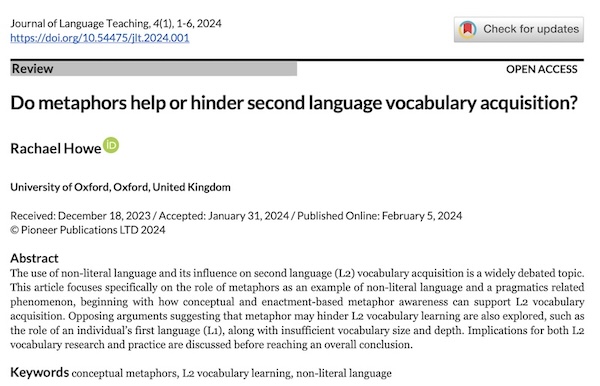Do metaphors help or hinder second language vocabulary acquisition?
DOI:
https://doi.org/10.54475/jlt.2024.001Keywords:
conceptual metaphors, L2 vocabulary learning, non-literal languageAbstract
The use of non-literal language and its influence on second language (L2) vocabulary acquisition is a widely debated topic. This article focuses specifically on the role of metaphors as an example of non-literal language and a pragmatics related phenomenon, beginning with how conceptual and enactment-based metaphor awareness can support L2 vocabulary acquisition. Opposing arguments suggesting that metaphor may hinder L2 vocabulary learning are also explored, such as the role of an individual’s first language (L1), along with insufficient vocabulary size and depth. Implications for both L2 vocabulary research and practice are discussed before reaching an overall conclusion.

Downloads
Published
Issue
Section
License
Copyright (c) 2024 Journal of Language Teaching

This work is licensed under a Creative Commons Attribution 4.0 International License.




